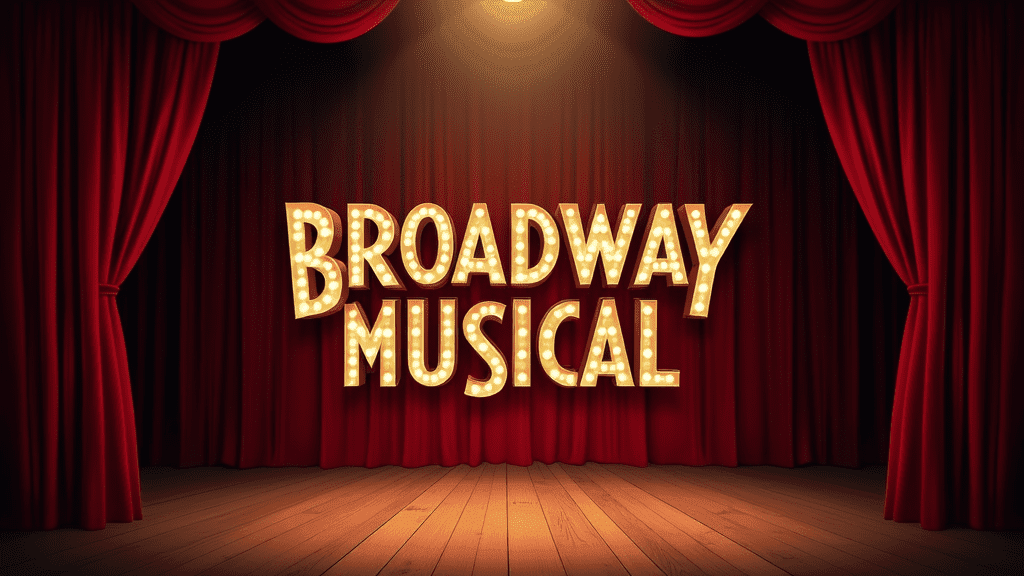Broadway Musical Title Changes: Why They Happen

Broadway musical title changes have become an intriguing aspect of theatrical evolution, as many productions undergo rebranding after their initial runs. This phenomenon often arises from the need to enhance audience appeal or align with licensing requirements, leading to Broadway show renaming that can significantly impact its reception. The process of musical adaptations can sometimes necessitate a shift in title to create a distinct identity separate from its original source material. Off-Broadway title changes also contribute to this dynamic, illustrating how theater title evolution reflects market trends and audience recognition. By examining notable examples, it’s clear that the trajectory of a musical can be profoundly altered through the simple act of changing its name.
When discussing the transformation of theatrical works, one might encounter terms like rebranding and renaming in the context of shows that have shifted their titles after initial performances. The journey of these productions can be marked by significant alterations, including new titles that resonate more with potential audiences. Various musicals, both on Broadway and in off-Broadway settings, have embraced this unique practice of title revision as part of their evolution. This approach not only seeks to refresh a show’s image but also aims to capitalize on audience familiarity with successful adaptations. Understanding this trend highlights the complexities involved in the journey of many popular stage productions.
The Evolution of Broadway Musical Titles
Musical title changes on Broadway are not as uncommon as one might think. Over the years, various productions have undergone significant title evolutions primarily driven by performance efficacy and audience recognition. Theater title evolution can often reflect the changes in a show’s narrative or its target audience, emphasizing the importance of marketing in the success of a musical. For instance, a title might be adjusted to better resonate with viewers or to clarify the show’s theme, contributing to higher ticket sales and broader appeal.
One notable example is the Broadway production of “Here’s Love,” which was later renamed “Miracle on 34th Street The Musical”. This rebranding was done to create a clearer association with its source material, thereby enhancing its license viability. With audience expectations shifting, musical adaptations have become more aligned with familiar franchise titles and popular movies to leverage existing fan bases, leading to a trend where new names are seen as essential for post-Broadway life.
Frequently Asked Questions
How often do Broadway musicals change their titles after Broadway?
Broadway musicals change their titles after Broadway runs occasionally. While it’s more common for shows to retain their original titles, instances like ‘Platinum Dreams’ and others show that rebranding can happen post-Broadway, particularly for shows with short runs. Title changes often assist in licensing and can make a musical more appealing to audiences.
What are some examples of Broadway show renaming after their initial run?
Some notable musical title changes include ‘Here’s Love’ being renamed ‘Miracle on 34th Street The Musical’ and ‘So Long, 174th Street’ becoming ‘Enter Laughing: The Musical.’ These changes help create distinct identities for adaptations and can enhance their marketability.
Why do musicals change their names in off-Broadway productions?
Musicals often adapt their titles for off-Broadway productions to better align with their source material, enhance licensing opportunities, or rebrand as they evolve. This strategy can differentiate the production in a saturated market and attract new audiences. For example, ‘Sugar’ became ‘Some Like It Hot The Musical’ when it toured, bringing clarity to its popular origins.
What is the significance of title evolution in musical adaptations?
The significance of title evolution in musical adaptations lies in brand recognition and audience expectation. By aligning the title more closely with familiar properties, productions can capitalize on existing fan bases and improve licensing prospects, making events like ‘The Mystery of Edwin Drood’ changing to ‘Drood’ during its run a strategic move.
Are there any recent Broadway title changes worth noting?
Recent Broadway title changes include ‘The SpongeBob Musical,’ which shifted between names during its run and tour, and ‘Summer: The Donna Summer Musical,’ which reflected a title update when it expanded beyond Broadway. These shifts reflect ongoing trends in branding and audience engagement for theater productions.
How does the evolution of musical titles impact theater marketing?
The evolution of musical titles significantly impacts theater marketing by enhancing visibility and recognition. Renaming to titles associated with well-known properties can draw larger audiences, as seen in cases where productions like ‘Christmas is Comin’ Uptown’ gained new life through clever rebranding efforts.
What role does audience familiarity play in Broadway show renaming?
Audience familiarity plays a crucial role in Broadway show renaming as theatergoers tend to be drawn to recognizable titles. This shift reflects changing perceptions where today’s audiences prefer adaptations to maintain brand cohesion with popular films or stories, resulting in successful adaptations like ‘Miracle on 34th Street The Musical’.
How does licensing influence Broadway musical title changes?
Licensing influences Broadway musical title changes by encouraging shows to adopt names that resonate with their source material. Successful adaptations like ‘Rockabye Hamlet’ provide examples of how rebranding can improve marketability and licensing opportunities, which is essential for the financial viability of these productions at all stages.
| Original Title | Revised Title | Reason for Change | Notable Facts |
|---|---|---|---|
| Platinum | Platinum Dreams | To indicate an updated version | Original production closed after 45 performances. |
Summary
Broadway musical title changes occur more frequently than one might think. While many shows stick with their original titles, some rebrand after lacking success on Broadway to give them another chance in licensing and performances. This can be due to a variety of reasons, including aligning the title with the source material or updating the artistic vision. Case studies such as “Platinum” changing to “Platinum Dreams” illustrate how titles can evolve when a show seeks renewal in its life cycle on stage.